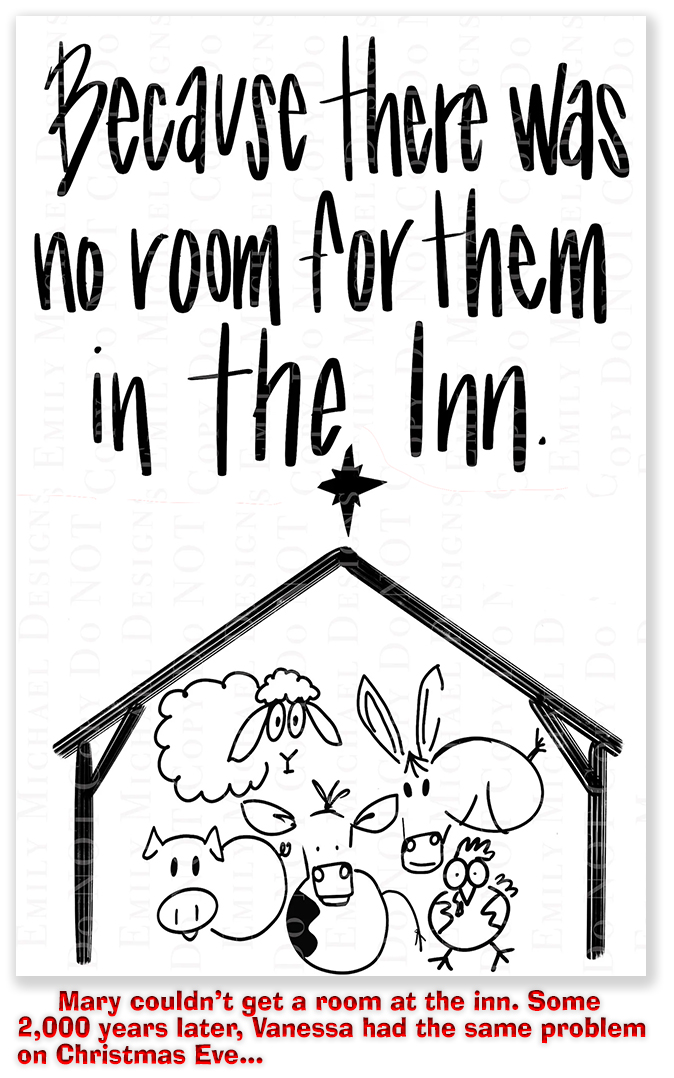We post news and comment on federal criminal justice issues, focused primarily on trial and post-conviction matters, legislative initiatives, and sentencing issues.

CLASS ACTION SUIT CLAIMS BOP VIOLATING FIRST STEP ACT ON FSA CREDIT RELEASES
The ACLU last Friday sued the Bureau of Prisons on behalf of eligible prisoners who are being denied the full use of credits awarded under the First Step Act because of insufficient capacity to place them in halfway house or home confinement.
 The lead plaintiff is Vanessa Crowe, a prisoner whose FSA credits entitle her to transfer to halfway house or home confinement today, according to the complaint. Although she should be spending the night before Christmas somewhere where no BOP creatures are stirring, she has been told by the BOP that she will not be transferred until May 2025 because there simply is no room at the halfway house inn.
The lead plaintiff is Vanessa Crowe, a prisoner whose FSA credits entitle her to transfer to halfway house or home confinement today, according to the complaint. Although she should be spending the night before Christmas somewhere where no BOP creatures are stirring, she has been told by the BOP that she will not be transferred until May 2025 because there simply is no room at the halfway house inn.
The New York Times reported last Friday, “Tens of thousands of federal prisoners deemed to be at low risk of committing crimes again have found themselves in a similar predicament, languishing in lockup for as long as a year after they reached their official release date under the First Step Act, which intended to create a fast-track pathway to release.”
Credits – usable to reduce sentence length by up to a year and to provide additional halfway house or home confinement time – are awarded to prisoners for successful completion of programming designed to reduce recidivism. Evidence after five years shows a significant reduction in recidivism among people who have completed the programs.
The BOP has previously acknowledged that the halfway house/home confinement system has been overwhelmed by the sheer number of people with FSA credits to spend. Last summer, BOP Director Colette Peters told a Congressional committee, “There’s a lot of frustration with the adults in custody… We simply don’t have the capacity in the community.”
The lawsuit recognizes the halfway house/home confinement problem but claims the BOP has responded by deeming inmates’ use of FSA credits “as optional, rather than compulsory,” the Times said. The complaint itself states
Although the FSA provides that any earned time credits ‘shall be applied’ toward time in prerelease custody or supervised release where certain conditions are met… the BOP’s regulation provides that the BOP ‘may apply FSA Time Credits toward prerelease custody or supervised release’ where certain conditions are met… The BOP’s practice is consistent with its regulations. The BOP has taken the position in litigation, and the BOP’s employees have stated in fact declarations, that the BOP has discretion over whether and when to apply earned time credits.
(The emphasis is mine, not the complaint’s).
 The complaint seeks to represent as a class “all incarcerated people who have earned or will earn time credits under the First Step Act, who meet or will meet the prerequisites for prerelease custody in 18 USC 3624(g)(1), and who have not been or will not be transferred to prerelease custody on or before the date when their time credits equal their remaining sentences.”
The complaint seeks to represent as a class “all incarcerated people who have earned or will earn time credits under the First Step Act, who meet or will meet the prerequisites for prerelease custody in 18 USC 3624(g)(1), and who have not been or will not be transferred to prerelease custody on or before the date when their time credits equal their remaining sentences.”
The Times said BOP “officials did not immediately respond to a request for comment.”
New York Times, U.S. Prisons Flout Law by Keeping Inmates Past Release Date, A.C.L.U. Says (December 20, 2024)
Complaint, Crowe v. BOP, Case No 1:24-cv-03582 (D.D.C., filed December 20, 2024)
– Thomas L. Root








